Do Newborns Dream? If So, About What?
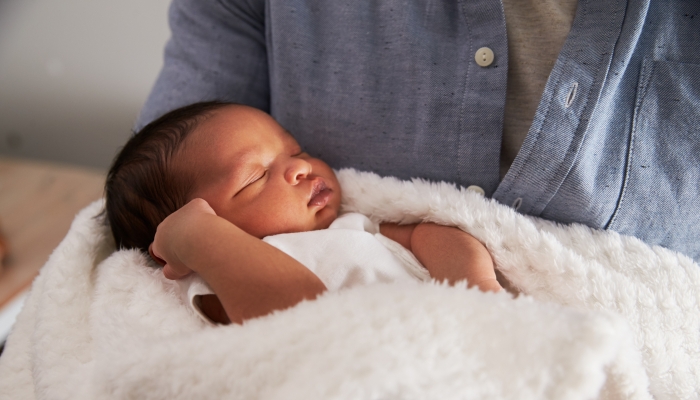
- Newborns don’t necessarily have dreams like adults, but they spend their active sleep working on brain development.
- Research suggests newborns haven’t developed the abstract thinking required for dreaming.
- Children’s dreaming usually begins around age seven, and by age nine, children can recall their dreams.
Whenever my babies were sleeping on me and smiling, I wondered if they were dreaming—because what could babies dream about? The idea of a baby dreaming during sleep time is sweet and intriguing, and I was excited to dig deep into this topic. If babies dream, what is it about?
Dreaming is an interesting concept, so it makes sense for parents to want to know if newborns dream. I’ve also wondered if babies have nightmares because mine would make some serious cries at night. The reality is we can’t ask our newborns if they dream or have nightmares, but there is a lot of research on the topic.
This brings us back to the main question—do newborns dream? Not exactly, but if babies dream, they likely aren’t as visual and interactive as adults’ dreams. Let’s look at if your baby dreams, or if it’s all in your dreams.
Do Babies Dream?
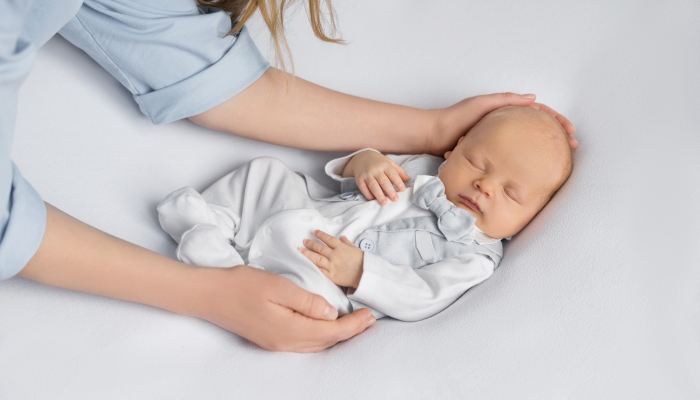
Babies spend significant time sleeping in their first few months of life, so it seems logical they would spend some of it dreaming. However, it’s not likely newborns have vivid dreams like older children and adults.
Of course, we can’t ask them to confirm, especially since we know baby sleep is precious, and we’d never wake them to ask. But, if babies dream, I’m sure it would be about their next feeding or avoiding tummy time.
However, most scientists don’t believe babies dream because they aren’t developmentally capable of abstract thinking. Additionally, they say that babies don’t have self-awareness and can’t imagine things visually.
Why It Looks Like Your Baby Dreams
When babies sleep, they frequently make cute noises or movements that make it look like they’re dreaming. Here’s a look at a few things to consider if you’re asking yourself, “Does my baby dream?”
Loud Sighs and Crying Out
If your baby is sleeping and sighs, you might wonder if they have an intense dream. However, according to the National Institutes of Health (NIH), babies sigh to regulate their breathing,
which is considered normal.
If your baby lets out a random cry in their sleep, you might have wondered, if babies have nightmares. Your baby might cry out in their sleep because they are hungry, not feeling well, or just because.
However, newborns will cycle back to their active sleep once they let out their cries or whimper and act as if nothing happened. An overtired baby will likely cry out, especially if overstimulated before bed.
Twitching Limbs and Fluttering Eyelids
You may see your newborn twitching limbs or having jerky movements during sleep. Babies still have their moro reflex at this age, which will stick around until your little one is between 4–6 months old.
Also, your baby might look like they are winking at you with fluttering eyelids while sleeping, but it doesn’t mean their dreams are that exciting. Instead, it’s their way of falling asleep.
You might even see your newborn with open eyes when they sleep, but rest assured, it’s completely normal.
Sucking Motions
Your baby might also display sucking motions in their sleep, including sucking on their fist. Even if no bottle, breast, or pacifier is in sight, that won’t stop babies from moving their mouths during sleep.
Newborns don’t have much control over their bodies, so don’t be surprised if they let out a sucking motion while sleeping.
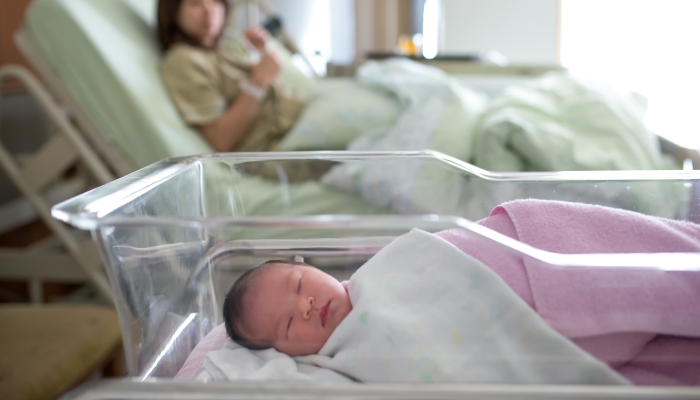
Newborns and REM Sleep
REM (rapid eye movement) sleep is the part of your sleep cycle where you tend to dream. According to the Sleep Foundation, REM sleep causes your eyes to move faster, an increased heart rate, and breathing to become irregular.
In addition, circadian rhythms don’t come naturally to newborns, so their little bodies don’t fall asleep like adults. Adults spend their days in a regular circadian rhythm and can distinguish night from day.
Babies spend half of their sleep in the REM cycle; however, it’s believed to be for other reasons than having a dream. REM sleep serves as a time for their brains to work to develop pathways and connections, leading to cognitive development.
In contrast, adults experience dreaming for about two hours and have shorter lengths of REM sleep early in the evening, gradually adding time over the night.
REM sleep is also the stage where babies generate the foundation for motor skills and language development. In comparison, the REM sleep phase is when adults have an increase in brain activity, and sleep is not as deep.
Other Sleep Stages in Newborns
In addition to REM sleep, newborns experience four non-REM sleep stages before babies enter rapid eye movement sleep and the possibility of dreams. Here’s a closer look at the three additional sleep stages occurring during nighttime sleep.
- Stage 1: Babies may open and close their eyes as drowsiness settles in.
- Stage 2: Babies enter a light sleep and will startle or produce jerky movements at sounds.
- Stage 3: Babies enter deep sleep and will stop moving.
- Stage 4: They enter very deep sleep, and the baby will not move.
The sleep cycle of newborns is not a straight line, and they bounce around the various stages throughout the night.
When Do Babies Start Having Dreams
Psychologist David Foulkes, the author of Children’s Dreaming and the Development of Consciousness in the Harvard University Press, suggests that real dreaming with organized stories likely doesn’t occur until a child is 7–9.
Foulkes, one of the world’s leading experts surrounding pediatric dreaming, has studied children of various ages and brought several children into his lab and let them fall asleep. He woke them up three times a night, disrupting both REM and non-REM sleep, and asked them if they remembered any dreams from their sleep.
While some toddlers recalled parts of their dreams, older kids had more vivid memories, which grew as they aged.
If babies dream, they aren’t giving up the secrets about it, and we’re left to speculate what is going on in their minds.
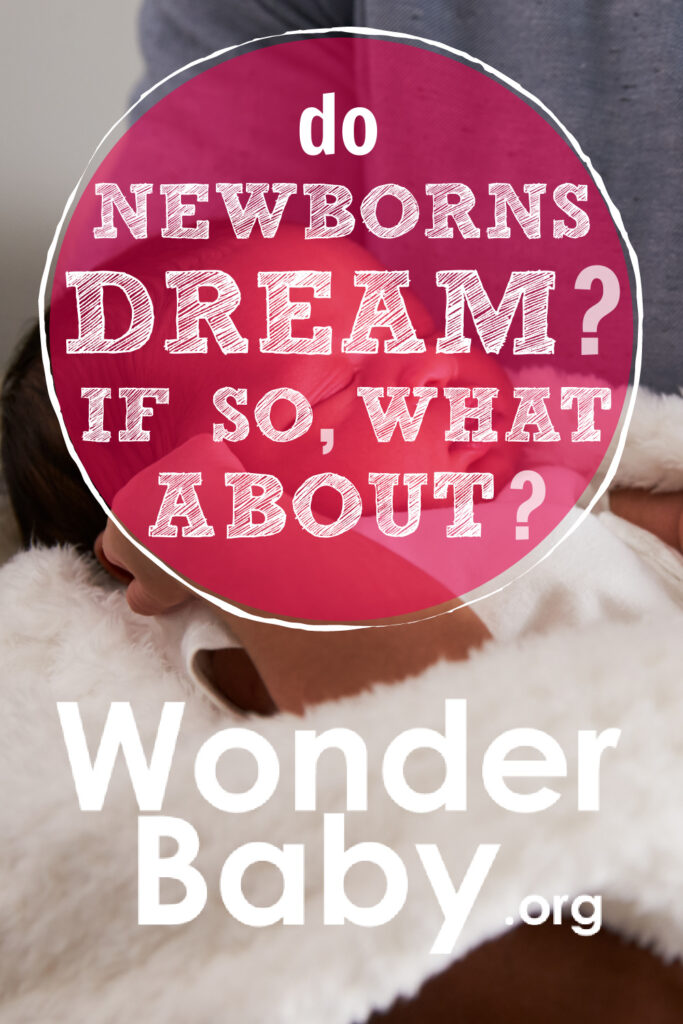
Related Posts
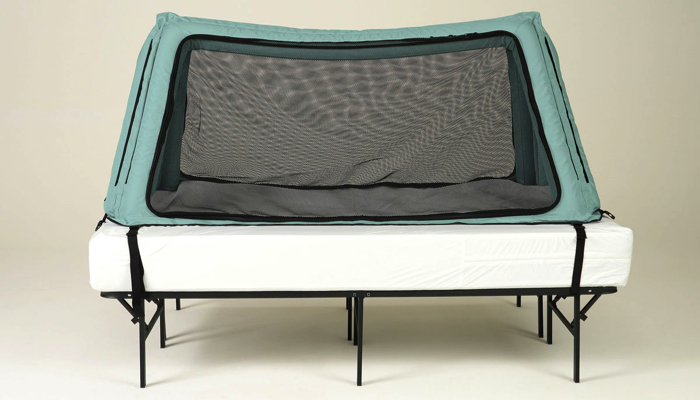
Sleep, Special Needs
Safe Place Bedding Travel Bed Review
Traveling with a special needs child can be stressful! Having a safe, durable, and easy to use travel bed can make traveling so much easier!
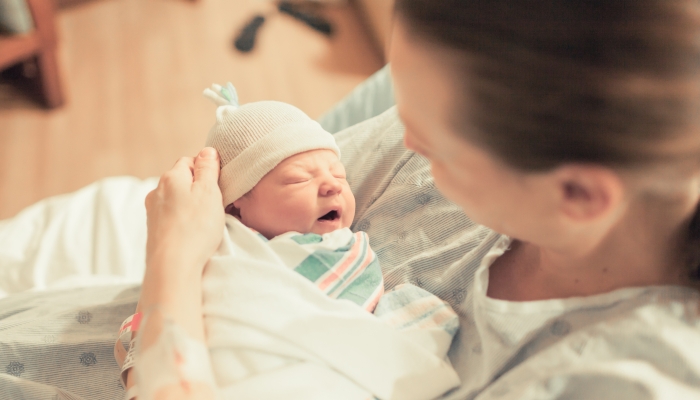
Sleep, Special Needs
Sleep Regimen for Premature Babies: Special Considerations
It can take premature babies much longer than their full-term peers to sleep for long stretches. A preemie sleep schedule may encourage better sleep.
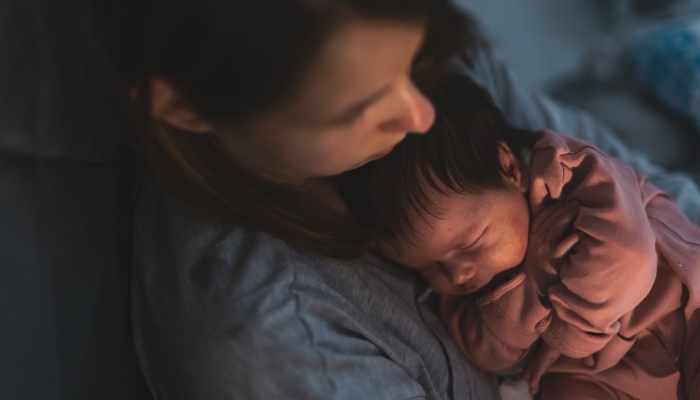
Sleep
Mastering the Bedtime Routine: 3 Tips for a Peaceful Night’s Sleep
From around six weeks, a newborn bedtime routine can help your baby learn the difference between day and night and prepare for a restful night’s sleep.